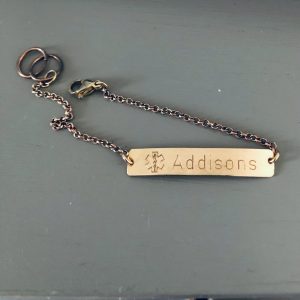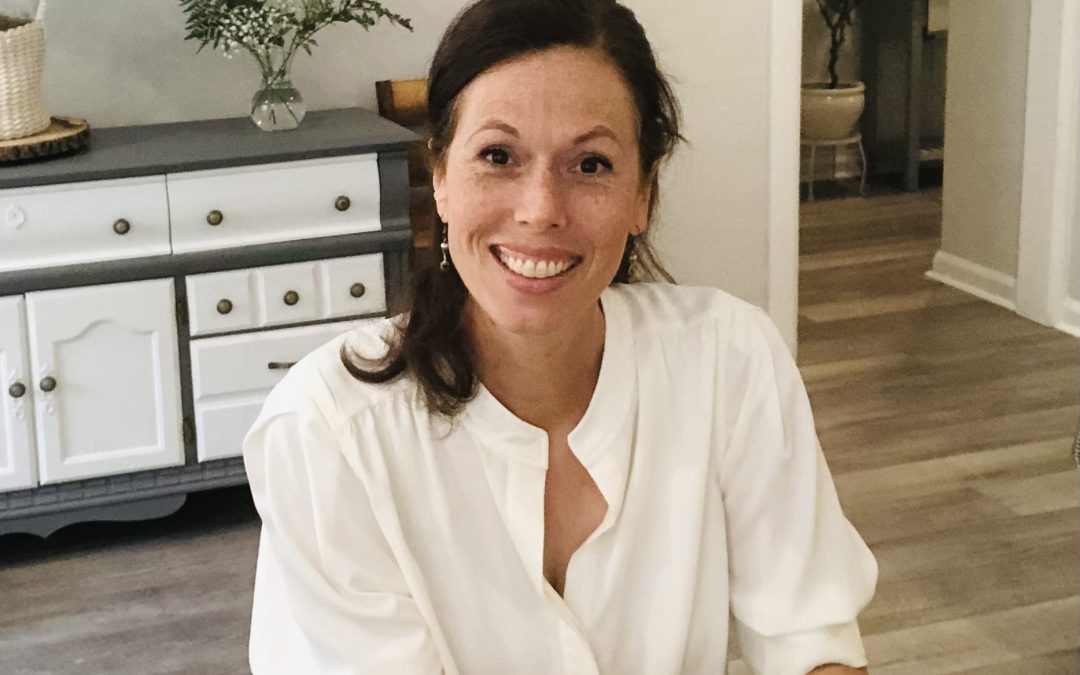Does anyone else get discouraged when, after prioritizing good nutrition and healthy lifestyle habits for years, serious illness still shows up? And you feel some level of betrayal that all “the right things” you thought were doing didn’t seem to work? Or maybe a weird sense of hypocrisy that despite your personal aversion to unnecessary pharmaceuticals, you’re now dependent on them? Or just a lot of confusion about why our body systems decide to malfunction? Anyone? Pull up a chair and let’s chat.
Foundation Health is a business and practice that promotes health and wellness. Dr. Adams’ expertise in providing sound chiropractic care, relevant and revealing lab testing, functional nutrition recommendations, and laser focused supplements, along with massage and other treatment modalities, are all aimed at helping you live life abundantly without the need for significant “sick care” interventions.
The goal is to stay out of the doctor’s office/urgent care/operating room/hospital, right?
I’m here to share, as The Chiropractor’s Wife, that with all we can and should be doing to promote and protect our health, things can still be rough. And that doesn’t mean we should give up.
February 29, 2024 was National Rare Disease Day. I’ve never been excited to align with specific diagnoses, although I have collected a couple in the last 15 years (both rare and otherwise). I think I subconsciously reasoned that a diagnosis is simply a name for a specific set of symptoms with a corresponding pharmacological or surgical intervention and a list of limitations. The end. No pathway for how to address whatever caused the dis-ease in the first place and no hope of moving toward greater health. Diagnoses are often perceived as lifelong, and can be extremely hard to remove from medical records. Of course (assuming it is done accurately) being diagnosed can and often does help when it comes to knowing which medications are most appropriate, and this is sometimes critical. But a diagnosis in and of itself doesn’t open the door to healing without a lot of extra work.
At least for me, a diagnosis (or another diagnosis) makes it easier to embrace a victim mentality of “this happened to me and there’s nothing I can do about it.” I’ve done my fair share of feeling that way, and now I’d much rather focus on understanding my body and what’s off kilter and why. I still have those pity parties from time to time, but I really want to work to improve what I can–with all the resources available–much more than I want to lament my “lack” of health.
But when I was diagnosed (there’s that word) with Addison’s Disease in 2023, a rare autoimmune condition that affects the adrenal glands and is life-threatening if left untreated, I was told it was imperative that I wear a medical alert bracelet. Because my adrenal glands do not produce the hormones they’re supposed to, if I’m ever in an accident and lose consciousness or can’t speak, it’s vital that my providers know that I suffer from adrenal insufficiency and am steroid dependent. The cortisol surge that would typically happen to protect someone else’s body in a crisis won’t happen in my body without extra steroids being administered. Hence, the need for the bracelet.
At first, I really resisted the idea of wearing a piece of jewelry that not only displayed some very personal information, but literally labeled me with my “problem” diagnosis. I did not want to identify as a sick person. I was worried that if I let my identity drift that way, I would subconsciously engage in thought patterns that would indeed make me even sicker. I wanted to focus on health, healing, strengthening, abundance–the good things, even if it was going to be a slow and somewhat grueling process.
I tried to organize my thinking somewhat like this: “My immune system has gone a little haywire and my endocrine system has taken a hit. Let’s do what has to be done to get that back on track as best we can” versus “I have Addison’s Disease and will be taking steroids for the rest of my life, and there’s nothing I can do about it.” I had resisted embracing–or at least broadcasting–the diagnosis because, even though I acknowledged what it meant, I didn’t want that to be my focus. I didn’t want to be the diagnosis.
But of course, once we figured out what was going on, there was no good alternative to the pharmacological treatment if I wanted to stay alive. I started the meds and things started to slowly improve. (Later my doctor agreed to me taking some specific supplements, and adding those in made a much bigger difference than the meds alone.) And as far as the bracelet–In the end, I told myself it was an excuse for a new piece of jewelry, and I wear the darn thing 24/7. No one has ever commented on it. I don’t think anyone has even noticed it. And maybe–but hopefully not, fingers crossed–someday it will prove to be important.

But here’s the reality–I do have Addison’s Disease. My adrenal glands have been attacked and ruined by antibodies and do not produce the hormones necessary for me to live. Whether or not they can/will heal any in the long run remains to be seen (most endocrinologists will give an emphatic no). And I know I wouldn’t have made it through 2023 without starting treatment. I had been trying to ignore my symptoms and had been in a low grade crisis of sorts for months. It wasn’t going to end well without intervention.
In fact, I had reached 114 lbs, which is a weight I hadn’t seen since about 4th or 5th grade (yes, I was an early bloomer!). I had trouble speaking, trouble lifting anything, trouble walking straight. Getting out of bed was the biggest feat of the day, and until mid-afternoon every movement felt like I was swimming upstream covered in heavy, wet blankets. I had severe fatigue and weakness and dangerously low blood pressure. I remember struggling to lift a spoon to my mouth. The upside was that because I could not physically mount a stress response, I was never stressed! Of course I could hardly maintain a conversation and brushing my teeth left me completely winded, but I faked it well enough for as long as I could. And in my defense, I had recently tested positive for some underlying infections that could have explained a lot of my symptoms, and I was focusing on that stuff, hoping once we cleared those infections out, things would improve. (If I hadn’t had the autoimmune involvement, they probably would have. But I wouldn’t have learned the lessons I’m learning now…)
The Chiropractor was gentle with me and knew things were getting bad but never really let me take on that “I’m a sick person” identity. He did the things I couldn’t do. He shared his strong faith that we were going to figure this out and that things would improve. He helped me find good doctors and run labs that eventually led to my diagnosis, probably much quicker than would have happened without him in my life. And he was my spiritual rock. He’s a good one, you guys. But he didn’t see me as sick. He responded to my needs day by day based on how I was feeling and what I needed, while helping me move toward healing the entire time.
Now, almost a year after my diagnosis, I’m doing so much better. I’m grateful for both the pharmacological and alternative resources and modalities that have helped me return to a greater quality of life. But living with a rare disease, and one that necessitates taking steroids multiple times a day indefinitely, has been an interesting experience in the context of being married to someone whose daily work is focused on preventing illness, injury and endless meds. I wanted to be the one championing the nutrition, supplements, and alternative healing modalities–not the fragile one taking medication forever.
I’m coming to terms with being both. (And I’m not nearly as fragile as I was.)
Important life lesson (and slight tangent): Two things can be true. We don’t have to look very far to apply this. How often in politics, religion, or social issues do we feel like if we accept, recognize, or embrace one idea, there must be an opposing argument that is irreconcilable? It doesn’t have to be one or the other. It can be both. The trick is coming to the core principle or idea and not muddying it up with unnecessary (and often untrue) implications.
As I’ve done my own work to reconcile my need for daily steroids with the ideals of functional medicine, my core principle is this: “God has given me lots of resources to help me thrive in this body.” The pharmacological resources (daily meds) and the more holistic resources (all the work to heal my immune system to hopefully minimize the need for meds someday) don’t cancel each other out. In fact, it’s become obvious that in my case, it’s way more effective to embrace both. (And for anyone worried about me taking long term steroids–it is a low, physiologic dose just enough to replace what is not being produced in my body. It’s far from ideal but it’s the only recognized treatment.)
For those of us living with many of these rare diseases, and for those of you that are dependent on daily medications and are limited by certain conditions, it often feels like every day is rare disease day (or common disease day if that’s applicable to you). And it gets so frustrating when we think we’re doing all the “right” things. While I won’t stop advocating for healing and improvement for myself and others, I want you to know that I see you and I understand you, because I am you. And sometimes it’s just brutal.
I was once told I had a “relatively rare” condition by an oral surgeon when I was about 12. Thirty years later I was told I had to wear a bracelet that announced a much more serious rare condition.
If you’ve read this far, bless you. And if this struggle resonates with you at any level, let’s find a way to be at peace with–or better yet, embrace–whatever makes us rare, even if it’s a label or diagnosis we would never have asked for and a treatment plan that scares us. Or maybe a really difficult life circumstance we think no one can relate to. As Winston Churchill may (or may not) have said (sources differ): “Never waste a good crisis. A crisis is an invitation to live differently.”
A diagnosis can often feel like a crisis, because often enough it is. But it can also be an invitation to open our minds and hearts to new ways of embracing life. And there’s good stuff out there to be embraced. Rare or not, let’s do more of that.
***Do you know a serial entrepreneur committed to improving the metabolic health of our country? A continuous cortisol monitor (similar to a continuous glucose monitor) would make a world of difference for Addisons patients in monitoring cortisol levels and finding the sweet spot for steroid dosing, and could also be a huge benefit to anyone in the general public interested in improving metabolic health since many people have elevated cortisol which leads to increased blood sugar and insulin resistance. Pharmaceutical and insurance companies will never fund it because the medical population of Adrenal Insufficiency patients is so small that there wouldn’t be enough profit. I’m not an entrepreneur and have no idea how this could come about, but I know great things can happen through our social media outlets. Someone please create this!
For a unique perspective on autoimmune healing, infertility, and faith, follow The Chiropractor’s Wife on Instagram @chirowifelife
To learn more about Addison’s Disease, check out these resources:
https://www.nadf.us/
https://www.addisonsdisease.org.uk/
https://www.chronicallyfitcanada.com/
The Pickle Jar podcast–Loving Someone with Low Cortisol



 I'm a BYU music ed grad who went on to become a pediatric music therapist in Texas, where I met and married my chiropractor husband (with a whole lot happening in between). While I can barely differentiate between an occiput and a sacrum and really have no business being on a chiropractic website, I can tell you that everything you read here will be based on my real life experience of being married to Brandt. From endless discussions about gut health to encouragement to try barefoot running to his own fast lasting five days--it's a great, kind of weird, life--and one I wouldn't trade for anything.
I'm a BYU music ed grad who went on to become a pediatric music therapist in Texas, where I met and married my chiropractor husband (with a whole lot happening in between). While I can barely differentiate between an occiput and a sacrum and really have no business being on a chiropractic website, I can tell you that everything you read here will be based on my real life experience of being married to Brandt. From endless discussions about gut health to encouragement to try barefoot running to his own fast lasting five days--it's a great, kind of weird, life--and one I wouldn't trade for anything.